Q&A- Confusion with Soaking Grains
Here's a recent question from my inbox:
…What I am getting is that all grains that I use need to be soaked,
whether they are in the grain form or milled (flour) form. To me that
would include: rice, barley, wheat, spelt, kamut, oats, wild rice, and
then the flours from these types of things (mainly I use spelt and
wheat).
What I do not get is do all of these things need to be soaked
first. Like if I want to make some brown rice, I normally take the dry
rice and add it to boiling water and I have rice to eat 30 min later.
If I am making bread, I scoop out whatever cups of flour I need and use
it. Are there some things that do not need soaking?
I noticed that a lot of the things seem to require dairy to soak
in. Neither I or my daughter can have dairy. I don't want to use lemon
juice or vinegar if it gives the grains a sour taste. I want my food to
taste the same it does now.
Nola
Are there others of you out there that are just as confused? Allow me to try to put some of that confusion to rest!
What needs to be soaked?
Pretty much everything- oats, wheat, spelt, kamut, barley, rye, all of it.
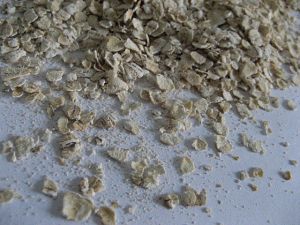
The one possible exception I have come across is rice. It seems that (according to Nourishing Traditions
), rice can be eaten without being soaked. In fact, Nourishing Traditions includes both unsoaked rice recipes (though it cooks slower and longer- 1-3 hours instead of 30-45 minutes), in addition to soaked recipes.
How do I go about soaking everything before I want to make it?
Basically, you just learn to put it into your schedule of meal planning and kitchen work. So, if you know that you want to make biscuits with stew on Tuesday, and quinoa on Saturday, you might add soak flour to Monday's to-do list and soak quinoa to Friday's list.
Initially, it takes a bit of forethought and I would often discover days where I had forgotten to soak what I had planned to make. If I could swap my meals around, I would doo so and then do the necessary soaking for the next day. If I couldn't, I did without the soaking and made a mental note to consider the soaking time the next time I planned to make that meal.
I've noticed that most other "traditional food" bloggers include their soaking tasks with their daily meal plan. I do the same thing in my planner. I don't always remember to do it during the day, but I try to make a point of going through my planner before I go to bed, to see if there's anything I need to get going for the next day.
Do I need to use dairy for soaking?
Nope, you don't! You can also use lemon juice or apple cider vinegar. You would add these in the same amounts as you would when a recipe calls for dairy.
If it calls for a cup of dairy, you can just substitute a Tbsp of lemon juice or apple cider vinegar, then fill the rest of the cup up with water. The results won't be exactly the same, but if you're already on a dairy-free diet, you're probably used to that. On a bit of a side note- I often cut the diary required in my baking/grain recipes by half, just because I'm cheap, and usually no one is the wiser. It truly doesn't make much difference, in most recipes anyways.
For more on this, see Soaking Methods for the Dairy Intolerant.
Will it still taste the same?
Hmmm… depends. In most recipes I don't notice that it tastes a whole lot different, as far as tasting sour. Now, I usually use cultured dairy (kefir, yogurt, etc.) in my recipes, so perhaps their sour taste is a bit more mild. Occasionally, though, I do use lemon juice.
One place I notice a sour tinge to the flavor is in oatmeal. I've gotten used to it, and it's not really strong, but it is there. I've heard that rinsing the oatmeal and adding fresh cooking water helps remove the flavor. Personally, I don't feel like it's worth the hassle, so I don't do it.
I don't think that my breads or baking have any sourness to them. Are they different than unsoaked products, though? Yup, they are. Baked goods are often a little bit denser (but not always), and they do take longer to bake. Some things are nicer- I really like grains like millet, quinoa and rice soaked, because they seem a bit softer or lighter to me.
Best of all, soaking makes grains sit better with me. I have a hard time digesting unsoaked grains, or ones that are raw (soaked, but not cooked), or only lightly cooked. Soaking and proper cooking really enhances my digestion, and that is so very worth it to me!
A few more Q&A on Soaking Grains (these links are all from Passionate Homemaking, who answered some soaking questions a while back)..
Any other questions? Fire away and I'll do my best to answer them! 🙂


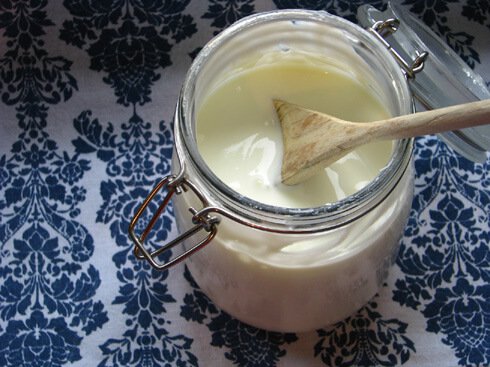
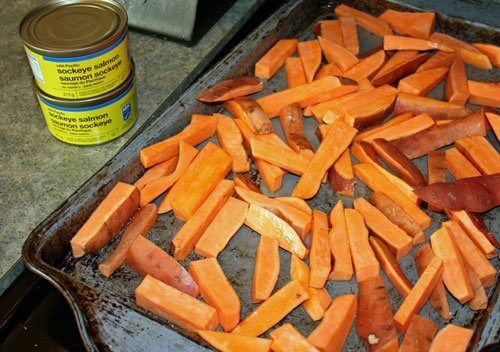
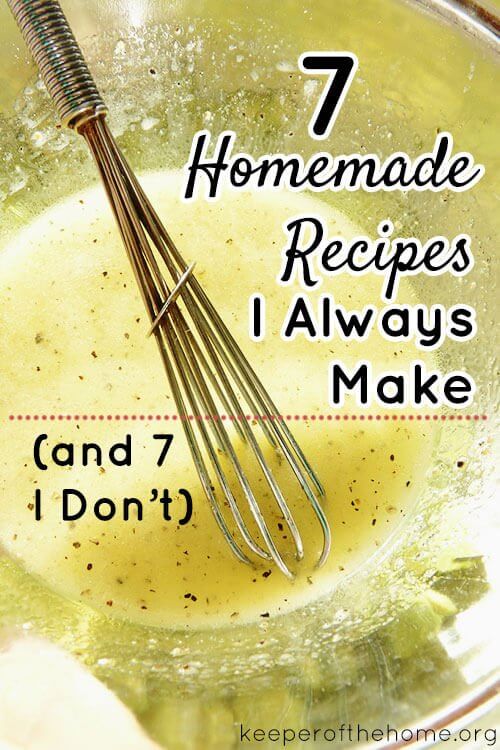
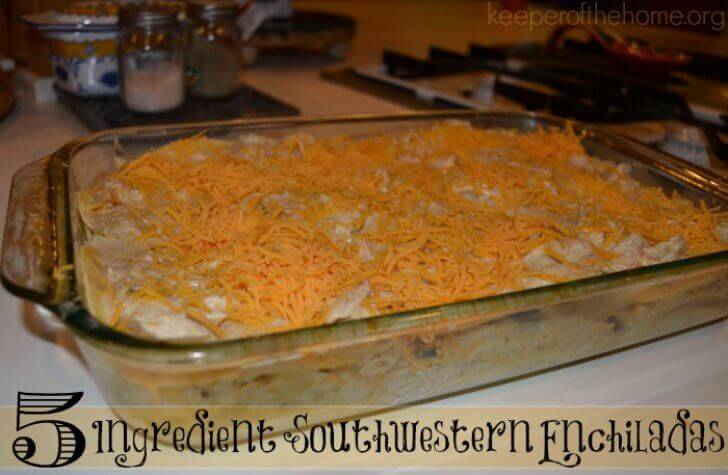
I have a question that is probably painfully obvious to most, but I seem to have missed it. Why are you soaking? Is it for the sake of nutrition? I did read something about allergies – is that why?
Thanks for satisfying by burning curiosity!
I’ve been wondering lately about millet, amaranth, buckwheat, teff and the non-glutenous grains do they still need soaking? For the same amount of time?
Thanks!
Okay, this has been my burning question for a while :o) …how do the unsoaked grains not sit well/not digest well with you? Upset stomach, etc? How do you know it is digesting better?
And for the person who doesn’t want a sour taste by using apple cider vinegar or lemon juice… I have only done soaked oatmeal…it has been my experiment a couple of times to see if I like it, and mostly I used lemon juice instead of the dairy. Half the time I rinsed it then added fresh liquid, the other half, I didn’t rinse, but compensated by adding fresh blueberries and either honey or maple syrup. It was great both ways. I didn’t notice the sour flavor at all, in fact it was more a nice lemony flavor w/ the blueberries.
As a side note…if you do happen to have quick oats that you are using and want to use that, I wouldn’t. Mine just turned to mush and it was hard to work with and not as flavorful. The rolled oats and the whole oat groats/steel cut were much better.
And one final thought…every Christmas my grandmother and I make risgrot (norwegian rice porridge…it’s awesome!). It takes about 3 hours of stirring to make a nice sized pot. I wonder if soaking the rice first would cut down on the cooking time overall, or if it would change the taste/texture of the recipe too much. Hmmm….
One more thing…I have a recipe for six week muffin mix w/ the main ingredients being bran cereal and buttermilk that you can keep for about a month in the fridge. Does anyone have a similar soaked grain recipe? I love these muffins, but when I look at the ingredients in the bran cereal, I realize these are not actually that healthy.
Michelle, I haven’t posted about it for a while, so here’s an old post for you to visit! 🙂
https://keeperofthehome.org/2008/05/baby-steps-let-s-get-soaking.html
This tells you just a teensy bit about it, and below you will find a couple of links to articles/posts with more details on the why’s behind it.
Linds, my understanding is that they all still need it, because it’s about the phytic acid, which is there whether they have gluten or not. So yes, I would still soak them all in the same manner as the others.
Faith, when I eat oatmeal (for instance) that hasn’t been soaked, it feels like it’s sitting in my stomach, like when you overeat on rich Italian food. Maybe not that pronounced, but a similar feeling. Also, I will often get a bit of gas or bloating within a half hour or so, or even slight stomach cramping. I can tell that it’s digesting properly when I feel full and satisfied, but not uncomfortable or gassy an hour later. Anyone else want to add to that?
Thanks for sharing about your experience with non-dairy soaking. I full agree about not using quick oats! I stick to rolled or steel-cut myself.
And I have never heard of a six week muffin mix- can you tell me more?
I have a question about soaking flour. I am on a gluten free diet and like make bread stuff from scratch. I usually use millet or rice and make flour using a coffee grinder. Would I grind the grains first then soak them? What would you do to soak the flour and for hour long? Thanks!
I’ll have to get back to you about the muffin mix at a later date…this week is crazy! We’re spackling, painting, making cookies for a cookie exchange, teaching two mornings, doctors appt, making food to go away with friends, and going away to a cabin for a long weekend!
Hello there everyone! I have been researching this topic lately and have some questions regarding Soaking.
Do you think it would be better to soak and or Sprout Grains instead of Soaking Flour? I mean, isn’t one of the reasons that grains are soaked is to get rid of, and rince away unwanted tannins and other compounds that are used to preserve the seed itself, but aren’t good for digestion?
To me it seems that by soaking flour, we aren’t allowing for anything to be rinced away in the process. This would imply that the soaking is only needed to convert compounds found on or in the seeds. Is this really true do you think?
So my main question is this, wouldn’t it be better to soak/rince the whole grain as opposed to the flour?
What confuses me is this: if you’re soaking grains to grind into flour… do you dehydrate them? how do you get them back into a dry state where they can be ground?
@jessica, You can soak flour that is already ground and there are many recipes that use this method.
But, you can also soak the grains, and then yes, you dehydrate them, so that you can grind them into flour. You can see how I make sprouted flour here:
https://keeperofthehome.org/2009/12/making-your-own-sprouted-grain-flour.html
I’m sorry that this is FIVE years old! Haha
I stumbled upon this post by chance, I’m researching and am new to soaking, so most specifically I’m looking for first hand accounts from real experiences. I have a few questions if you don’t mind:
-Is it complete coincidence, or should my belly feel more gassy than usual at first? I read somewhere that the introduction of fermented foods can at first cause an “upset belly”-does this relate? Could it be other dietary changes?
-I am so confused about adding dairy, especially when soaking flour. Is it safe to simply leave flour soaked in milk out on the counter overnight?
-When soaking flour, why is it more digestible if the “icky” water isn’t dumped like when you soak whole grains and oats?
Just a note, I soaked my steel cut oats for the first time with a teaspoon of raw cider vinegar overnight, rinsed, but still tasted a slight vinegary taste. It didn’t put me off, but I’m glad you mentioned it because I was wondering if I’d done something wrong!
Thanks for your help!